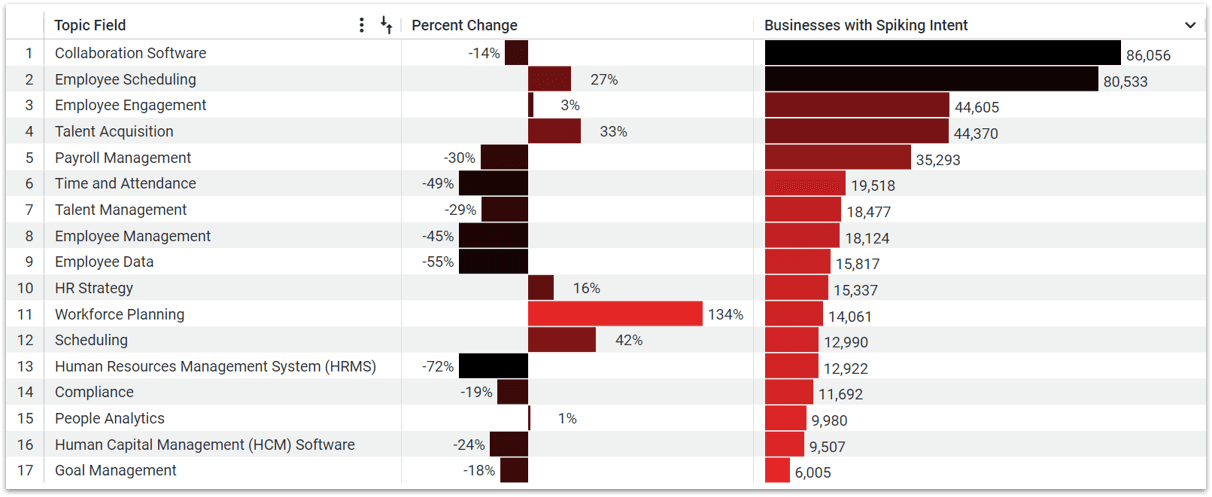Account-Based Marketing (ABM) has revolutionized traditional approaches with a targeted strategy that prioritizes high-value accounts. This method has proven its effectiveness, with more than half of marketers surveyed reporting that their ABM campaigns have outperformed other marketing efforts in revenue generation. By focusing in on the most promising prospects, ABM not only streamlines marketing investments but also aligns sales and marketing teams towards common goals. However, addressing the challenges of ABM is crucial for maximizing its benefits.
As an ABM evangelist and practitioner, I’ve witnessed Account-Based Marketing transform from a strategic initiative limited to only a handful of accounts to a GTM approach that has reshaped the B2B landscape.
Now, strategic focus on high-value accounts, personalized engagement, and alignment of sales and marketing efforts are not just trends; they’re fundamental pillars driving success across competitive markets.
The data-driven insights and proven ROI make ABM an indispensable strategy for businesses serious about forging lasting connections with their key accounts and maximizing revenue growth.
– George Ford, ABM Manager at Inbox Insight
This article explores 11 key benefits of ABM and why it has become a widely adopted B2B marketing strategy.
Reading time: 6 minutes
What is Account-Based Marketing?
Account-Based Marketing is a strategic, account-based approach that treats individual accounts as markets in their own right. Rather than casting a wide net with their marketing efforts, businesses using ABM tailor their strategies to attract their list of target accounts. This personalized approach results in highly effective marketing campaigns that resonate with the target audience, leading to increased engagement and conversion rates.
The rising popularity of ABM
Over the past few years, the adoption of ABM has surged. B2B businesses have recognized its potential to optimize their marketing efforts and build lasting relationships with their key accounts. According to a study by SiriusDecisions, 92% of B2B marketers worldwide consider Account-Based Marketing ‘extremely’ or ‘very’ important to their overall marketing efforts. This growth in popularity is testament to the effectiveness of ABM and its ability to deliver significant returns on investment (ROI).
11 key Account-Based Marketing benefits
ABM offers a multitude of benefits that make it an attractive strategy for businesses seeking to optimize their marketing efforts. Here are the main advantages of an Account-Based Marketing approach:
1. Enhanced customer experience
One of the biggest benefits of ABM is the enhanced customer experience it delivers. By focusing on specific key accounts and personalizing their marketing strategy to cater to their unique needs and preferences, businesses can create a highly engaging, satisfying and consistent customer experience. This personalized approach not only increases customer engagement rates but fosters a stronger relationship between the brand and its customers. Maintaining customer relationships is crucial for growing a loyal customer base of your target B2B buyers.
2. Greater ROI
ABM stands out for its ability to generate a higher ROI compared to other marketing strategies. By focusing on high-value target accounts that are more likely to convert, businesses can optimize their marketing spend and achieve a higher return on investment. Based on insights gathered from our exclusive first-party Account-Based Marketing infographic, two-thirds of senior ABM and marketing professionals regard the ROI of ABM to be higher than that of other sales and marketing activities. It’s no wonder 58% of marketers plan to increase their spending on ABM over the next 12 months.
Learn more about how ABM programs can be used to increase ROI with Inbox Insight’s Account-Based Marketing services.
3. Enhanced insights with ABM
ABM’s targeted approach equips sales teams with precise and actionable insights. By concentrating on pre-selected accounts, it yields rich and directly relevant data, fostering a deeper understanding of each prospect’s unique needs and behaviors.
This focused intelligence empowers sales teams to craft more informed and effective sales strategies. Rather than employing a broad approach, ABM offers a personalized view of each account’s world, allowing sales teams to tailor their tactics with precision, ultimately increasing the likelihood of conversion.
In essence, ABM transforms data into a potent sales tool, enhancing the effectiveness of every customer interaction and providing a significant edge in the sales process.

4. Sales and Marketing alignment
An Account-Based Marketing strategy brings sales and marketing teams together by aligning their goals and ensuring both teams are working towards the same agenda. Under ABM, both teams work collaboratively to identify target accounts, develop personalized marketing strategies and execute campaigns – it’s a real team effort to achieve the optimal results.
The improved alignment between marketing and sales leads to increased efficiency, better communication, and ultimately, more successful outcomes. Organizations with tightly aligned sales and marketing teams experience 36% higher customer retention rates, which highlights the value of a unified approach in not only acquiring but also retaining customers. This synergy is a cornerstone of the ABM methodology, ensuring that both teams contribute to building enduring customer relationships.
5. Efficient use of resources
By focusing on high-value, targeted accounts, Account-Based Marketing programs allow B2B companies to make more efficient use of their resources. Instead of spreading their efforts thinly over a large audience, they can focus their time, effort, and budget on accounts that are most likely to yield results. This efficient use of marketing resources leads to more effective campaigns and a higher return on marketing spend.
6. Increased engagement
ABM leads to increased engagement as it allows businesses to create personalized content that resonates with their target audience. By understanding the needs and preferences of the target accounts, companies can create relevant content that speaks directly to them, leading to higher engagement levels. In fact, 83% of marketers say ABM increases engagement with target accounts, underscoring the effectiveness of this approach in fostering meaningful interactions.
An effective and comprehensive B2B content marketing strategy goes a long way in ensuring you have an abundance of assets ready to make a real impact with your target account lists – ensuring your Account-Based Marketing efforts have not gone to waste!
7. Accelerated sales process
ABM can help businesses accelerate their B2B sales process by reaching out to all key decision makers within the target account right from the start, helping to reduce the time it takes to close a deal. An Aberdeen Group study found that companies implementing ABM programs have experienced a 30% reduction in the length of their sales cycles. This leads to not only shorter sales cycles but also an increase in the sales team’s efficiency – enabling more sales wins to be secured within a given timeframe. By streamlining the sales process in this manner, ABM plays a crucial role in driving faster and more efficient revenue generation.
8. Improved customer retention rates and loyalty
ABM can also lead to enhanced customer retention and loyalty. By providing a personalized experience and building deeper relationships with customers, businesses can increase customer satisfaction and loyalty, which in turn leads to higher customer retention rates and a greater customer lifetime.
9. High-quality leads
Another major benefit of ABM is that it results in high-quality leads. Since ABM focuses on high-value accounts that have been pre-qualified as a good fit for the business, the leads generated through ABM are usually of high quality and more likely to convert. This makes way for more qualified leads then unqualified leads – something every company strives for when it comes to business growth.
10. Better tracking and measurement
ABM allows for improved tracking and measurement of your marketing initiatives and approach. Businesses can track key metrics at account level, such as engagement, conversions, and ROI, and use this data to optimize their B2B marketing tactics and overall approach to marketing as a whole.
11. Scalability
Finally, ABM is highly scalable. Once a successful Account-Based Marketing strategy has been implemented and optimized for a set of target accounts, it can be easily scaled to target more prospective accounts, leading to increased pipeline growth for your business.
Final thoughts
Account-Based Marketing presents a powerful approach for B2B marketing teams, bringing a host of benefits that can significantly improve marketing outcomes. By adopting an ABM strategy, businesses can drive enhanced customer experiences, deliver personalized marketing messages, boost revenue growth, align their marketing and sales teams, generate high-quality leads, and much more.
Interested in experiencing the benefits of Account-Based Marketing for your business? Find out more about the ABM services we offer.






